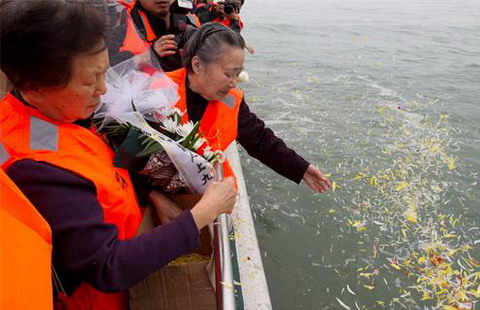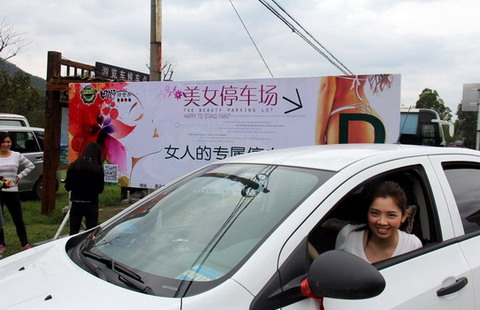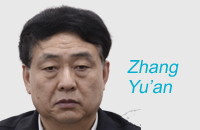Poor funeral directors
By teamkrejados (blog.chinadaily.com.cn) Updated: 2015-04-07 18:37What if the foreigner in question loves China so much that they wish to be buried here? Legislation largely bans it, with the small exception of one cemetery in Shanghai, and only if that foreigner has made exceptional contributions to Chinese society. I don't know what qualifies as 'exceptional', and I don't want to be buried anyway. Unfortunately I don't know how the law is formulated for an expat who wish to donate his body.
Before I get back to our poor morticians, and to illustrate how severe the stigma is against them, let me tell you the story of the woman who had to change her address three times in six years because she did not bury her parents according to tradition. She acceded to her parents' wish to be donors, thus she incurred no funeral expenses and, in fact, got a little cash for their generosity. Apparently her neighbors felt she was unfilial and disrespectful. They held that she should have denied her parents their wish and buried them. She could no longer stand their jabs and taunts. Hopefully she did not disclose her parents' final destination to her new neighbors.
Or hopefully, she will. The Chinese largely regard even blood donation from living people as sacrilegious. Why would one give away one's qi – life force? Thus, organ and body donation has a long way to go to become socially acceptable here, and the only way for it to gain acceptance is through education. So maybe my hope should be that this woman finds a progressive neighborhood to live in, where she can share her experiences openly and teach others of this more charitable option.
Funeral directors are equally stigmatized, and I don't understand why. It seems everyone wants a dignified burial ceremony and strives to provide a comfortable afterlife for their dear departed, but the people who facilitate the transition from one life to the next are vilified. One funeral director, in the business for over 20 years, reports that he is too ashamed to tell people what he does for a living. He can't get technicians to come fix broken equipment in his shop. Because those who deal in death are so negatively branded, many in the industry struggle to find pride in their work or a work identity that doesn't clash with social mores.
While death is an accepted part of life in Chinese culture, it is not openly discussed. On the contrary: it violates basic social principles. So, even though morticians are performing a legitimate and needed service, they are condemned for their role in society. It seems to me that that is yet one more oxymoron of Chinese culture, puzzling but perhaps unchangeable.
Or is it? What if we could make a paradigm shift? Include the mechanics of transition from one life to the next with the reverence our ancestor are entitled to? After all, those ancestors would not have made it to the afterlife without the proper ministrations of those qualified and trained to prepare the bodies.
To me, maligning a mortician is rather like cussing a taxi driver for taking you to your destination. Seems silly, doesn't it? Didn't you ask the taxi driver to do his or her job? Aren't morticians necessary for the proper and dignified disposal of human remains?
Could you imagine the world without properly disposed remains?
Today is Qing Ming, China's Tomb Sweeping Festival. During any other celebration ancestors are revered close to home, with an altar in their honor prominently displayed, or burning paper money and those recently on-the-market gift packs. Today millions will migrate to the tombs to perform their ancient rites. Could I ask a favor, please?
For just a minute, could you give a kind thought to the people who paved the way for your ancestor's dignified passage to the afterlife?
The oringinal blog is at: http://blog.chinadaily.com.cn/blog-1372409-27906.html











